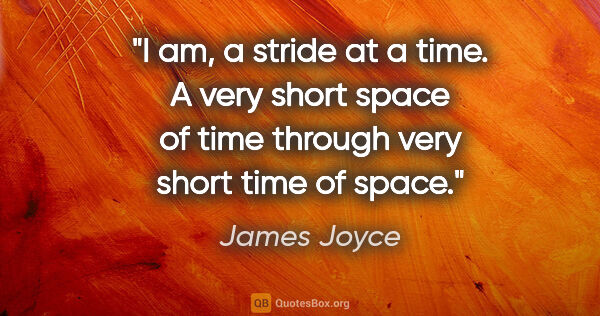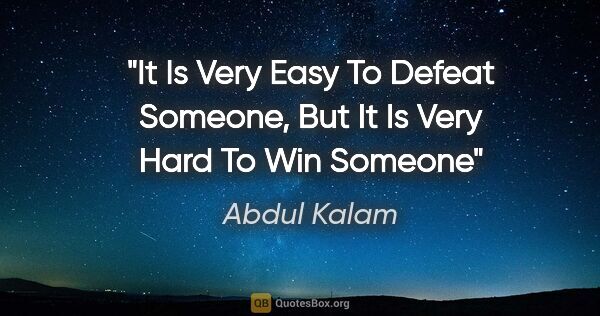Very Quotes (page 34)
A consequentialist or utilitarian is likely to approach the abortion question in a very different way, by trying to weigh up suffering. Does the embryo suffer? (Presumably not if it is aborted before it has a nervous system; and even if it is old enough to have a nervous system it surely suffers less than, say, an adult cow in a slaughterhouse.) Does the pregnant woman, or her family, suffer if she does not have an abortion? Very possibly so; and, in any case, given that the embryo lacks a...
Richard Dawkins
Listen, nothing's better than being useful. Tell me how, at the present moment, I can be most of of use. I know it's not for you to decide that, but I'm only asking for your opinion. You tell me, and what you say I swear I'll do! Well, what is the great thought?"
"Well, to turn stones into bread. That's a great thought."
"The greatest? Yes, really, you have suggested quite a new path. Tell me, is it the greatest?"
"It's very great, my dear boy, very great, but it's not the greatest. It's...
Fyodor Dostoevsky
What did I feel? Appalled. Astonished. Bewildered. I thought I was doing so well. I thought I was charming the hell out of him. I thought I had him eating out of my hand. Well: I thought I was getting away with it. I might have known. There is always a catch. But suddenly I felt very very young, like a child. Suddenly I wanted to run to - God knows whom, maybe God Himself - why is there never a face I can put to whom I want to run? - and cry, 'But I thought he liked me. All I want...
Elaine Dundy
You are fond of history! And so are Mr. Allen and my father; and I have two brothers who do not dislike it. So many instances within my small circle of friends is remarkable! At this rate, I shall not pity the writers of history any longer. If people like to read their books, it is all very well, but to be at so much trouble in filling great volumes, which, as I used to think, nobody would willingly ever look into, to be labouring only for the torment of little boys and girls, always struck...
Jane Austen
Would it be possible for me to see something from up there?" asked Milo politely."You could," said Alec, "but only if you try very hard to look at things as an adult does."Milo tried as hard as he could, and, as he did, his feet floated slowly off the ground until he was standing in the air next to Alex Bings. He looked around very quickly and, an instant later, crashed back down to the earth again."Interesting, wasn't it?" asked Alex."Yes, it was," agreed Milo, rubbing his head and dusting...
Norton Juster
I have one word to say upon the subject of profound writers, who are grown very numerous of late; and I know very well the judicious world is resolved to list me in that number. I conceive therefore, as to the business of being profound, that it is with writers as with wells; a person with good eyes may see to the bottom of the deepest, provided any water be there; and often, when there is nothing in the world at the bottom, besides dryness and dirt, though it be but a yard and half under...
Jonathan Swift
Should a writer have a social purpose? Any honest writer is bound to become a critic of the society he lives in, and sometimes, like Mark Twain or Kurt Vonnegut or Leo Tolstoy or Francois Rabelais, a very harsh critic indeed. The others are sycophants, courtiers, servitors, entertainers. Shakespeare was a sychophant; however, he was and is also a very good poet, and so we continue to read him.
Edward Abbey
I'm so glad you're here, Anne,' said Miss Lavendar, nibbling at her candy. 'If you weren't I should be blue…very blue…almost navy blue. Dreams and make-believes are all very well in the daytime and the sunshine, but when dark and storm come they fail to satisfy. One wants real things then. But you don't know this…seventeen never knows it. At seventeen dreams do satisfy because you think the realities are waiting for you further on.
L. M. Montgomery
And if Amsterdam was hell, and if hell was a memory, then he realized that perhaps there was some purpose to his being lost. Cut off from everything that was familiar to him, unable to discover even a single point of reference, he saw that his steps, by taking him nowhere, were taking him him nowhere but into himself. He was wandering inside himself, and he was lost. Far from troubling him, this state of being lost because a source of happiness, of exhilaration. He breathed it into his very...
Paul Auster
Why was he alive on Earth? Very often the meaning was obscured. Very often it required some digging. The meaning of his life was an elusive stream of water hundreds of feet below the surface, and he would periodically drop a bucket down the well, fill it, bring it up and drink from it. But this did not sustain him for long.
Dave Eggers

